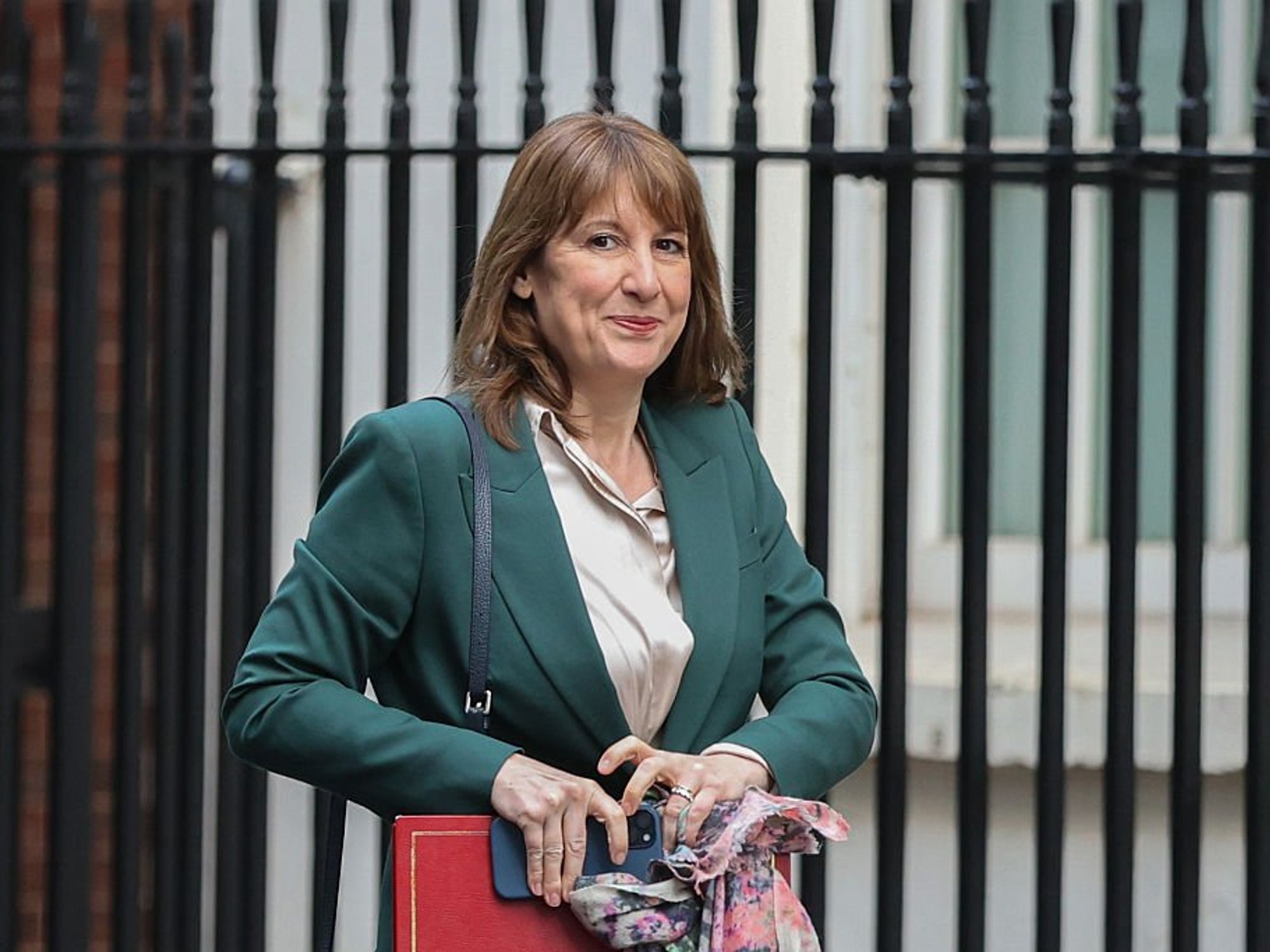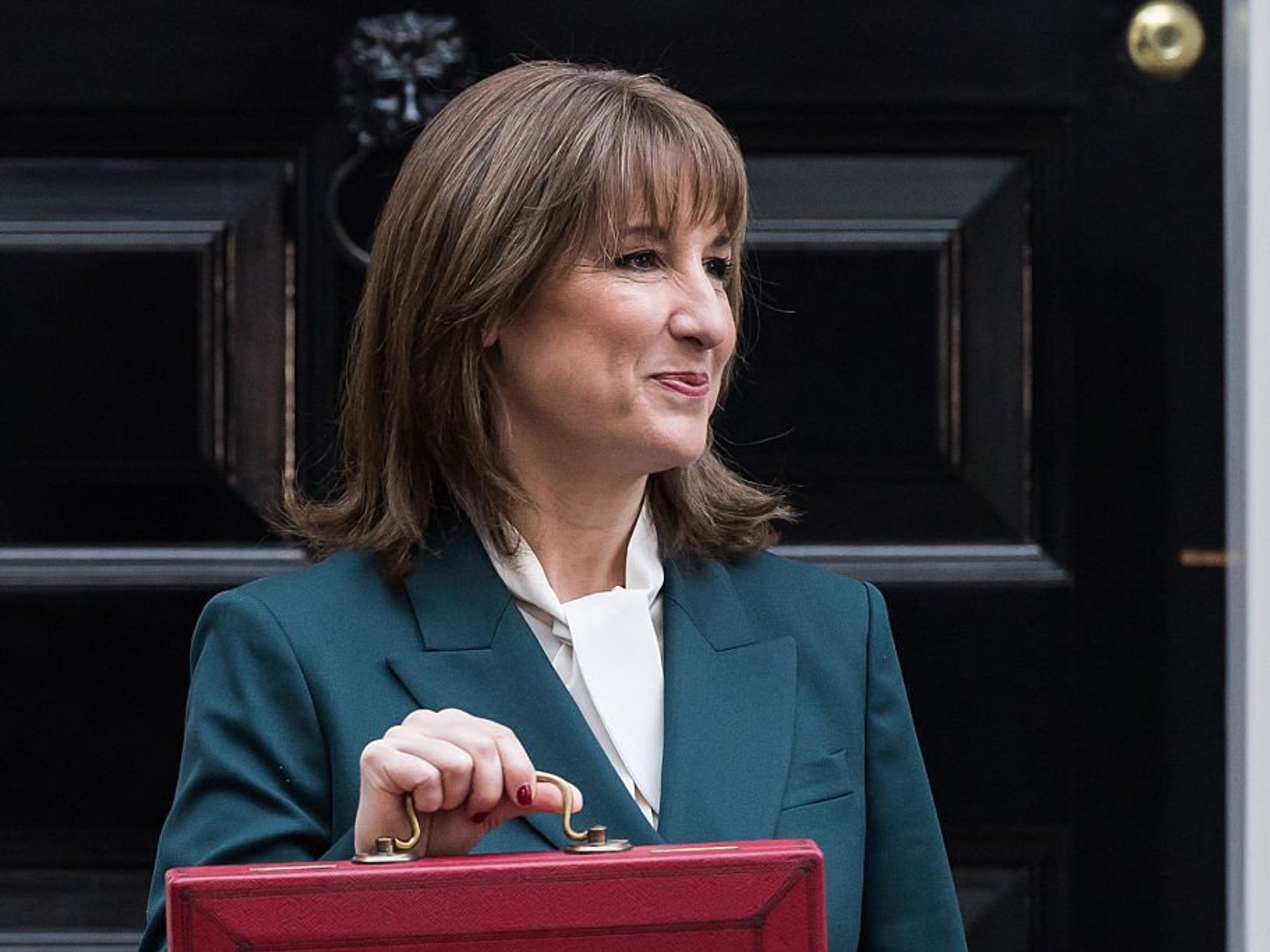State pension warning: Thousands of retirees to be worse off next year despite triple lock boost
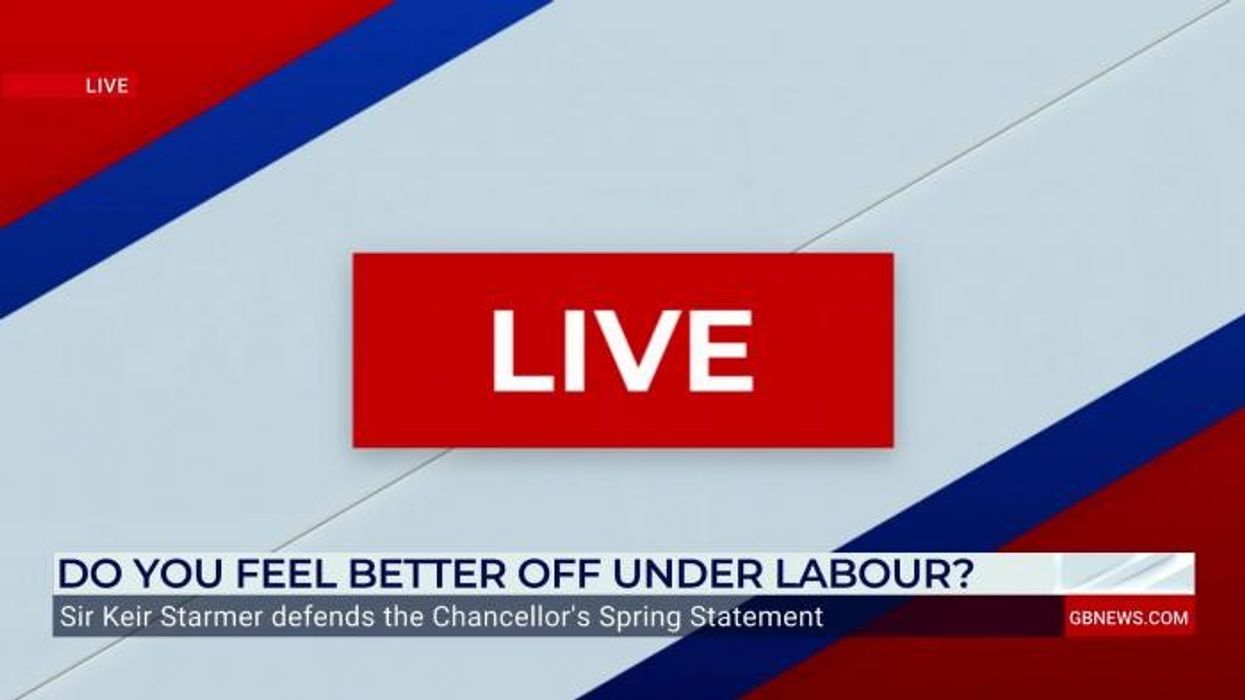
‘Rubbing our noses in it!’ State pension rise will be swallowed up, retiree fears - ‘Doesn’t go anywhere’ |
GB News

State pension will rise by £562 in April but many will be left worse off
Don't Miss
Most Read
Latest
Retirees across Britain face a troubling paradox next year, as an anticipated £562 boost to their state pension will still leave many financially worse off for the change.
The annual payment is set to increase from £11,973 to £12,535 in April, yet this seemingly generous rise masks a harsh reality.
Former pensions minister Baroness Ros Altmann warned that "undoubtedly" numerous pensioners will struggle more in the coming year, adding: "Food, basics for housing, energy, insurances and so on are rising faster than many other prices, and further price rises will hit the lower income pensioners most."
The basic state pension will see a smaller increase of £431, climbing from £9,175 to £9,606, but experts stress that escalating living costs will consume most of these gains, leaving Britain's elderly population feeling the squeeze.
TRENDING
Stories
Videos
Your Say
The mechanism determining these pension increases is the triple lock guarantee, which ensures the state pension rises annually by the highest of three measures: wage growth, inflation, or 2.5 per cent.
July's wage growth figures showed a 4.7 per cent increase, making this the likely benchmark for calculating next year's uplift when the new rates take effect in April.
The triple lock has long served as a safeguard for Britain's retirees, protecting their income against erosion, yet its effectiveness faces unprecedented challenges as multiple economic pressures converge.
The system's automatic adjustments, whilst providing predictable increases, aren't shielding pensioners from the compound effects of rising prices across essential goods and services.
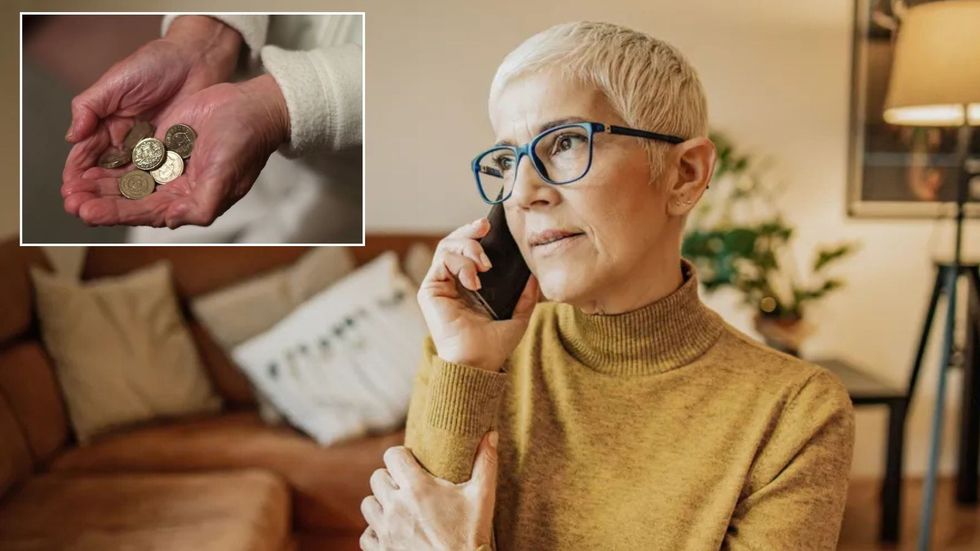
Experts warn further price rises will hit the lower income pensioners most
|GETTY/PA
Current inflation stands at 3.8 per cent, having crept upward steadily since May.
Food and beverage costs bear significant responsibility for this surge, with food prices alone jumping 5.1 per cent year-on-year to August — the steepest climb since January 2024.
Energy costs compound these pressures, with October's price cap rising from £1,720 to £1,755, adding £25 to household bills.
The April cap remains uncertain, coinciding with pension increases and creating further anxiety for households on fixed incomes.
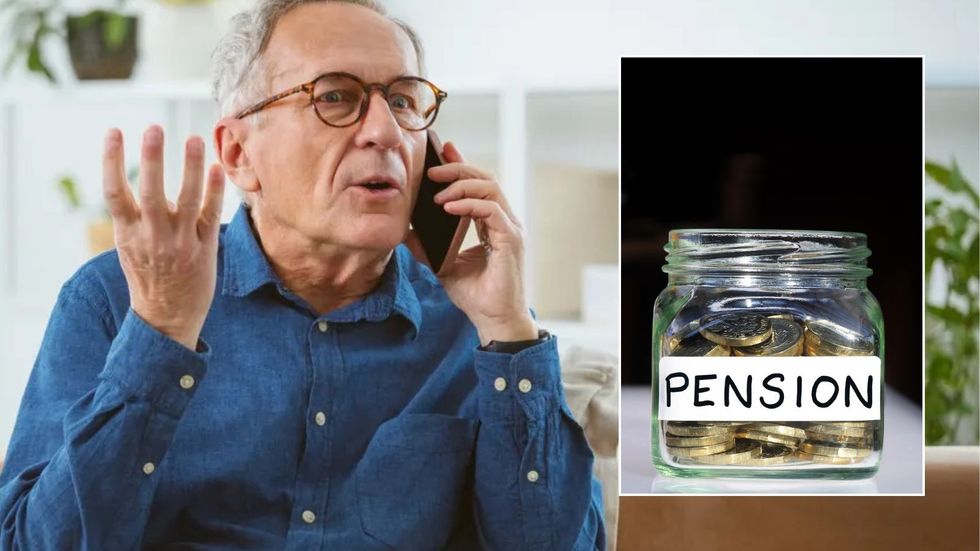 State Pensioners are among the eligible | GETTY
State Pensioners are among the eligible | GETTY Charlene Young, senior pensions expert at AJ Bell, highlighted the disproportionate impact, saying: "Those on the lowest incomes are most sensitive to rises in food and energy costs, as these make up a far bigger proportion of their spending."
Dennis Reed from Silver Voices painted a bleaker picture, warning: "Far from keeping pensioners up with the cost of living, this year's triple lock increase was immediately eaten up by the rise in utility bills and council tax hikes."
The spectre of taxation also looms large for Britain's pensioners.
With the new state pension potentially reaching £12,535, recipients will find themselves merely £35 beneath the £12,570 personal allowance threshold, a gap that has narrowed each year due to frozen tax bands.
Tax thresholds have remained static since 2021, a deliberate strategy to bolster Treasury revenues.
This freeze creates fiscal drag, pulling more individuals into tax brackets as incomes rise, and should thresholds stay frozen, a modest sub-1 per cent pension increase in 2027 would push the state pension above the tax-free allowance for the first time.
Some already feel this pinch, particularly those who deferred their pensions for higher payments and now encounter unexpected tax bills.
Higher-rate taxpayers face particularly steep losses, as a £562 pension increase would trigger £337 in tax obligations.
Pensioners can take practical steps to navigate these financial challenges.
LATEST DEVELOPMENTS:
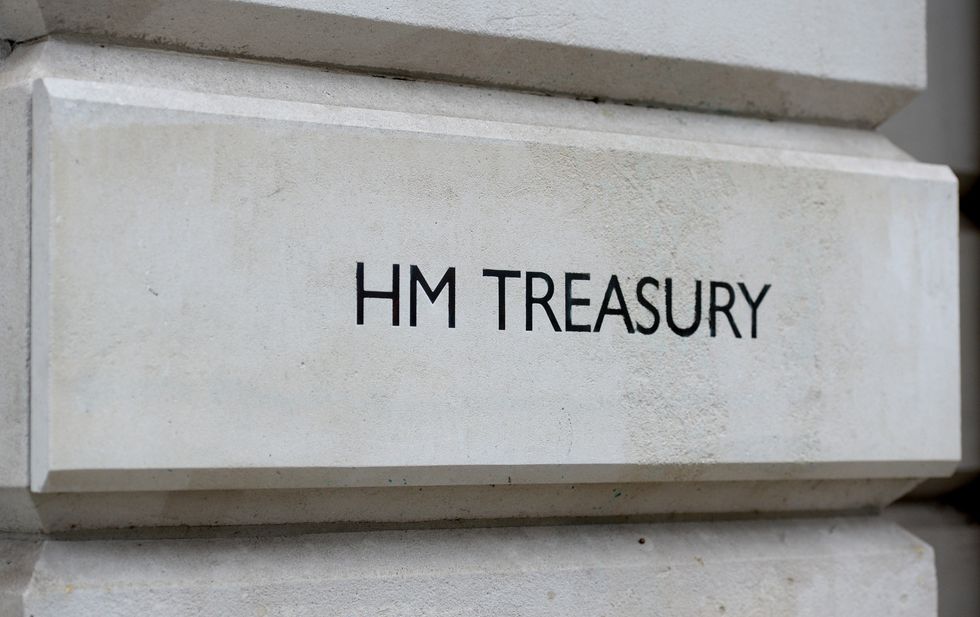
Tax thresholds have remained static since 2021, a deliberate strategy to bolster Treasury revenues
| PAWithdrawing only essential funds from private pensions helps avoid unnecessary tax liabilities, as the state pension now consumes more of the personal allowance.
Leaving surplus funds invested allows tax-free growth whilst preventing avoidable savings interest taxation, and the 25 per cent tax-free withdrawal option remains available, though financial advice is recommended before proceeding.
Ms Young emphasised: "It's crucial people check to make sure they're claiming all the support they are entitled to."
Free benefits calculators from Turn2Us, Age UK and GOV.UK can help identify unclaimed entitlements, and struggling pensioners can contact Age UK's complimentary advice line on 0800 169 65 65.
Mr Reed added that "food profiteering by the supermarket giants continues to force poor pensioners to skimp meals and use food banks," highlighting the urgent need for comprehensive support as Britain’s ageing population grapples with an unforgiving cost-of-living crisis.
More From GB News








